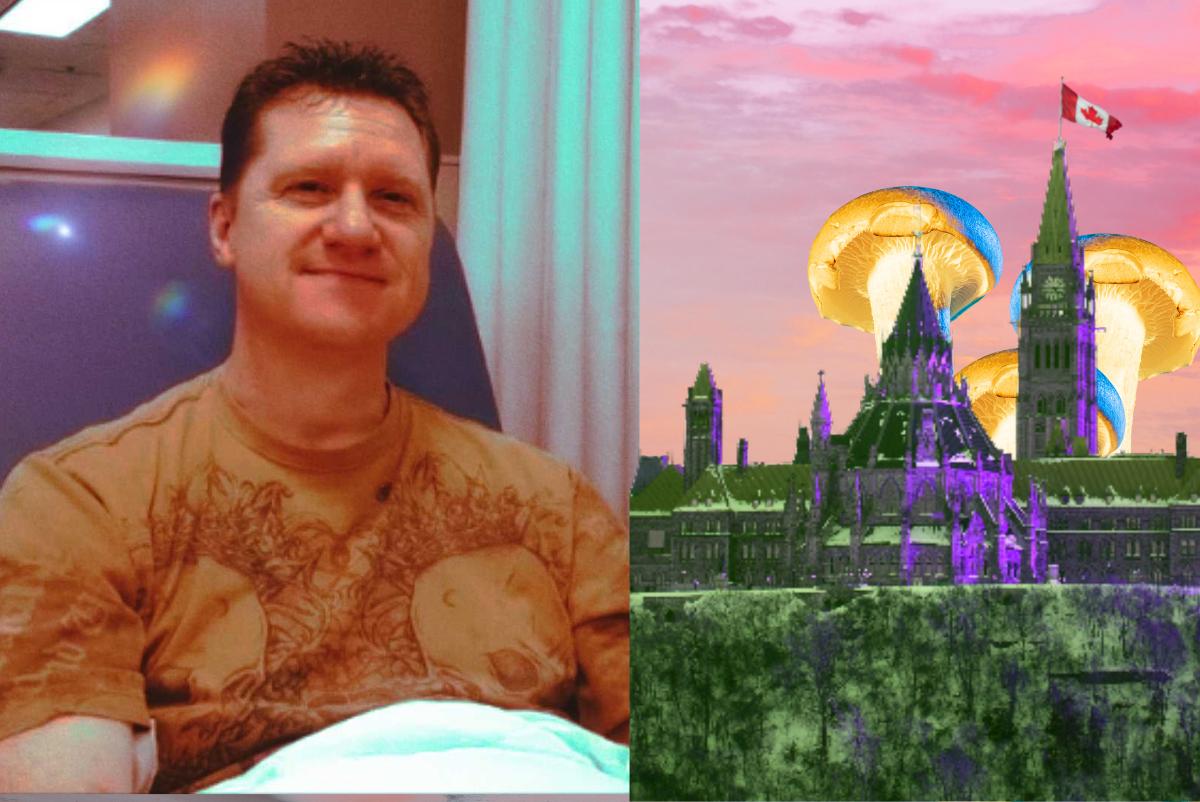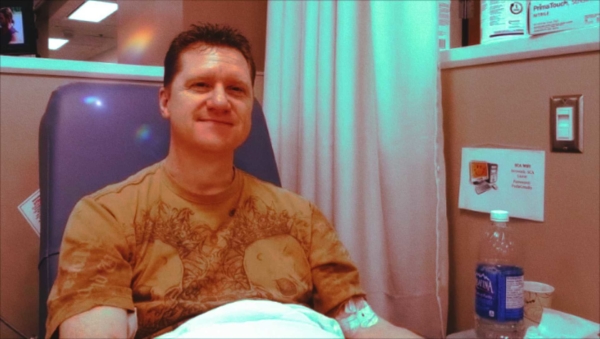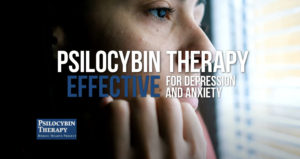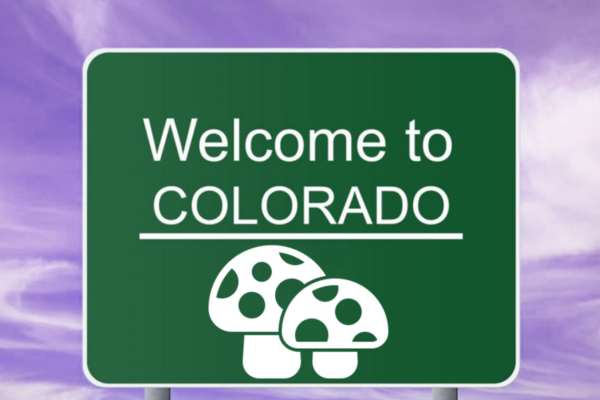
On July 27th, 2022, patients suffering from cancer, depression, cluster headaches and other serious health concerns, as well as one healthcare practitioner, sued Canada’s federal government. In the lawsuit, they’re asserting a constitutional right to medicinal “magic mushroom” access rooted in s. 7 of Canada’s constitutional Charter of Rights and Freedoms.
The case is ongoing. If it succeeds, Canada may be legally mandated to legislate a national psilocybin-assisted therapy program, perhaps similar to that of states like Oregon.
The case is Hartle et al. v. Canada. Here’s how it started, and how it’s going.
1. 56 and the Special Access Program
In 2020, due to extensive lobbying efforts by BC-based nonprofit advocacy group TheraPsil, Health Canada began sporadically granting s. 56 exemption requests for psilocybin-assisted therapy under Canada’s Controlled Drugs and Substances Act.
These exemptions allowed applicants in Canada legal access to psilocybin outside the context of clinical studies for the first time in decades. But the exemptions weren’t subject to any standard procedure. There wasn’t even a form one could fill out. Patients would just write Health Canada letters. The Minister of Health could basically choose to grant, deny, or ignore requests at their whim.
Pressed for a better means of access (again, largely by TheraPsil), Health Canada amended Special Access Program (SAP) regulations in January 2022. The rule change permitted those seeking access to psilocybin or MDMA-assisted therapy to apply by having their physician fill out and submit a Health Canada form. Applicants would be eligible for access through the SAP if they were suffering from a “serious or life-threatening condition” for which other conventional treatments had failed.
Though many expected this to make accessing psilocybin-assisted therapy easier, it hasn’t played out that way. On the contrary, Health Canada has been incredibly stingy in granting SAP requests for psilocybin-assisted therapy.
Furthermore, the rules applicable with respect to the SAP sometimes lead to ridiculous results, like psilocybin doses being strictly prescribed to the point that patients can’t deviate even slightly from pre-defined amounts in any given session. So, if a patient is reticent about taking a certain dosage they perceive as too high, well, too bad.
The Lawsuit
The Hartle plaintiffs have all applied for access to psilocybin either via s. 56 or SAP. In some cases, their applications were denied even after they’d been previously granted an approval for which they were seeking a renewal. Accordingly, having reached the limit of their frustration, they decided to file suit (with TheraPsil’s help) against the federal government.

The plaintiffs’ claim argues that access to psilocybin-assisted therapy solely via s. 56 or the SAP, where a requesting patient seeks access for “treatment of a serious health issue”, fails to provide patients with “constitutionally viable access”. The argument posits that patients should be able to rely on a personal physician with “a duty to put the well-being of their patient first, to always act for the benefit of the patient, and to promote the good of the patient.” They shouldn’t have to focus their hopes on distant and unknown bureaucrats in Ottawa.
The Precedent
Canada’s psychedelic law community had actually contemplated a lawsuit like Hartle for some time. After all, it’s how Canadians first garnered access to lawful medical cannabis about twenty years ago.
In 2000’s R. v. Parker, Torontonian Terry Parker was charged with various offenses relating to cannabis used to treat his own severe epilepsy. As Parker told the Ontario Court of Appeal though, cannabis was all that effectively controlled his seizures.
Parker claimed a right to access cannabis for this medical purpose under s. 7 of the Charter, which guarantees persons in Canada a right to “life, liberty, and security of the person”. Since without cannabis, Parker couldn’t live life as he chose. Namely, without constant seizures.
The court found Parker’s argument persuasive. Cannabis was “necessary medicine” for him, per the text of the decision. The court was not, however, persuaded by the government’s argument that the danger of cannabis was so great as to make medical legalization a threat to the function of society. Nor was it persuaded that Parker had sufficient access to medical cannabis all along via s. 56.
Accordingly, Parker was successful. And per the court’s order, Canada got its first regulated (albeit highly imperfect) medical cannabis program a year later.
Is Hartle the New Parker?
If one swaps “psilocybin” for “cannabis” in the Parker ruling, do we arrive at the same result? Probably. But that doesn’t mean the ruling in Parker will automatically apply in Hartle.
Parker’s central question was never addressed by the Supreme Court of Canada, and in any event, the case law since then has changed considerably. In some ways it’s moved away from the Ontario Court of Appeal’s approach in Parker. Though in other respects, the court has expanded Canadians’ liberty interest under s. 7 in ways that could favour Hartle’s plaintiffs – the Supreme Court’s 2015 Carter decision granting a constitutional right to access medical assistance in dying (MAiD) being the principal example.
That decision, and subsequent regulation of the program under which MAiD is administered, remains a flashpoint in Canadian society. Though in light of MAiD legalization and the program’s in-the-works regulations for eligibility solely on mental health grounds, many find the difficulty of access to psilocybin-assisted therapy not just baffling, but horrifying: should Canadians have easier access to medically-assisted death than psilocybin-assisted life?
What Now?
Hartle is ongoing in Federal Court, with lawyers for the plaintiffs currently requesting greater document disclosure by the government. The government is pushing back on disclosure requests, though that’s par for the course in litigation.
But why is the government spending our taxpayer dollars on fighting this case anyways? Legalizing psilocybin would be a huge boon to Canada in so many ways, and Canada’s ruling coalition of Liberals and New Democrats has expressed support for it. Furthermore, at this point, we’d just be following in the footsteps of Oregon, Colorado, and even Australia, which have all moved to legalize access to psilocybin-assisted therapy, albeit by varying degrees.
While in Ottawa last month at a TheraPsil-sponsored event, I got to ask Green Party co-leader, Saanich—Gulf Islands MP, and psychedelic-assisted therapy access advocate Elizabeth May why she thought the federal government seemed to be holding up progress, particularly given the Liberals’ 2015 historic electoral victory on the back of their promise to legalize recreational cannabis.
May admitted she had little inside knowledge of the circumstances, but expressed suspicion that Health Canada’s bureaucracy may be opposing legalization at the behest of the pharmaceutical industry.
I floated my theory that the Prime Minister and other Liberals may, in fact, be in favour of legalization by means of court writ rather than Parliament. As this would allow the party to enter the next election season with an answer to inevitable Conservative Party accusations that Trudeau would soon be distributing government-funded LSD tabs for children: blame the courts, not us.
May said maybe, but she didn’t know. Indeed, nobody appears to.
In the meantime, however, as everyone waits for the case to play out, hundreds of people in Canada – including Hartle case plaintiffs with terminal illnesses – are barred from legal access to psilocybin-assisted therapy.
And while those denied access but located in Vancouver or Toronto are able to (illegally) purchase impressively-packaged (illegal) psilocybin products from (illegal yet aboveground) local dispensaries, any healthcare practitioner who might oversee psilocybin-assisted therapy sessions with them would be doing so at the risk of their medical license.
This is all ridiculous, of course. But there’s an obvious in-the-meantime solution until we get comprehensive legalization and regulation: Health Canada can make the SAP application process easier.
To start, as Hartle plaintiffs’ lawyer Nicholas Pope explains, Health Canada could stop requiring epic-length written rationales from physicians submitting SAP application forms, with details on every medication or therapy the patient has ever attempted, and the specific impact a patient’s condition has on their daily life, including career and relationships.
“The ministry should accept physicians’ medical opinions about what whether psilocybin-assisted psychotherapy is a reasonable medical choice for a patient, rather than micromanaging each decision,” says Pope.
Finally, Health Canada should respond to applications within the 1-2 working day timeline like they claim to adhere to, instead of making applicants wait weeks to hear back from them.
Co-Ministers of Health, Carolyn Bennet and Jean-Yves Duclos could also simply grant more s. 56 exemptions, namely in cases where applicants are clearly good candidates for psychedelic-assisted therapy access, but perhaps simply don’t fit the narrow parameters within which Health Canada can grant SAP applications. But as stated, these are stop-gap options regarding what for many patients is their ‘last stop’ option. What’s needed is comprehensive psychedelic therapy legislation guaranteeing patients not just a constitutional right to die, but a right to try. We’ll soon find out if Canada’s courts agree.
Marc Z. Goldgrub is a lawyer at Green Economy Law Professional Corporation, a boutique Toronto law firm with a focus on green business, psychedelics, and housing. He also runs PsychedelicLaw.ca.





